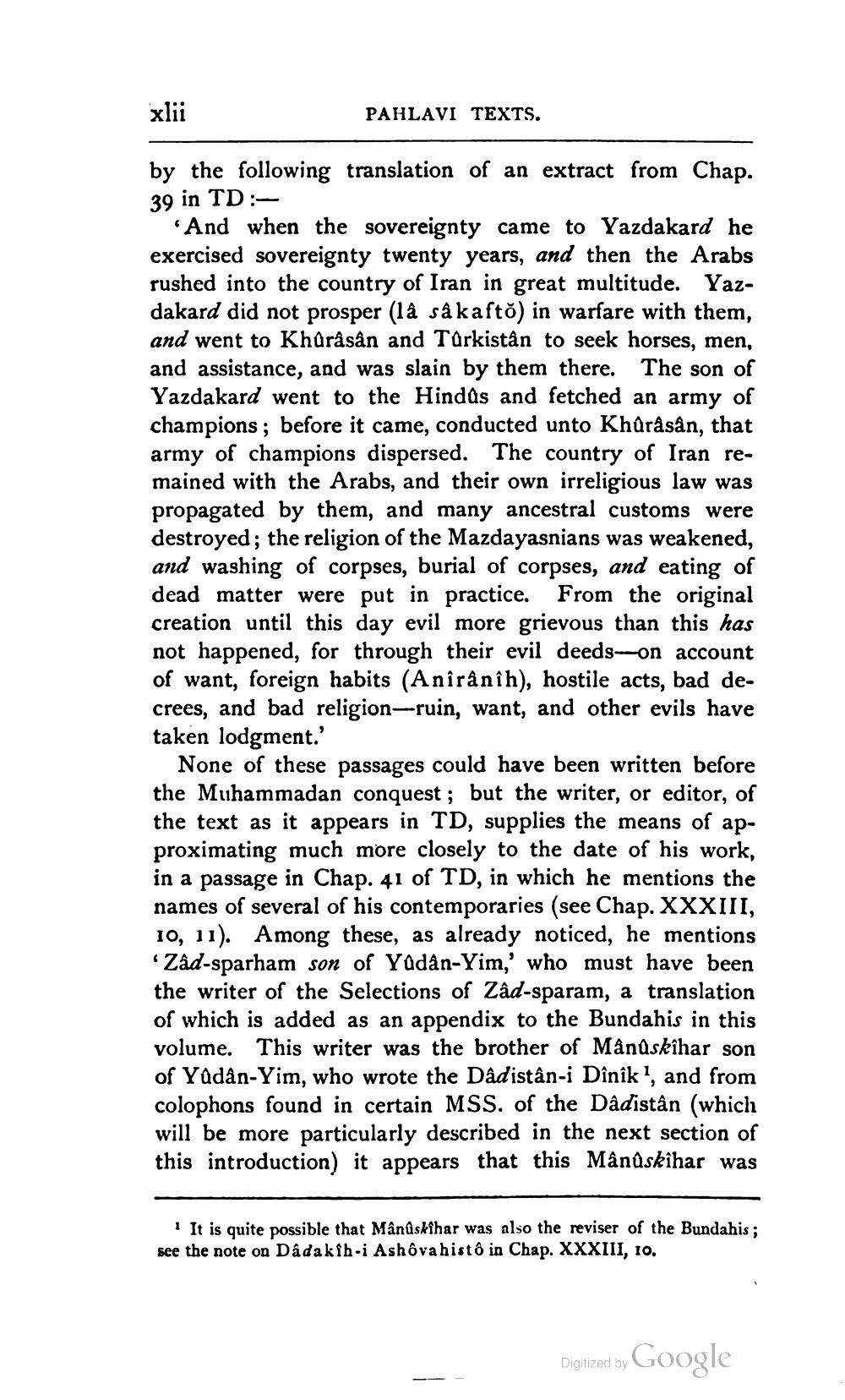________________
xlii
PAHLAVI TEXTS.
by the following translation of an extract from Chap. 39 in TD:
* And when the sovereignty came to Yazdakard he exercised sovereignty twenty years, and then the Arabs rushed into the country of Iran in great multitude. Yazdakard did not prosper (là sâkasto) in warfare with them, and went to Khurâsân and Turkistân to seek horses, men, and assistance, and was slain by them there. The son of Yazdakard went to the Hindus and fetched an army of champions; before it came, conducted unto Khûrâsân, that army of champions dispersed. The country of Iran remained with the Arabs, and their own irreligious law was propagated by them, and many ancestral customs were destroyed; the religion of the Mazdayasnians was weakened, and washing of corpses, burial of corpses, and eating of dead matter were put in practice. From the original creation until this day evil more grievous than this has not happened, for through their evil deeds--on account of want, foreign habits (Aniranih), hostile acts, bad decrees, and bad religion-ruin, want, and other evils have taken lodgment.'
None of these passages could have been written before the Muhammadan conquest; but the writer, or editor, of the text as it appears in TD, supplies the means of approximating much more closely to the date of his work, in a passage in Chap. 41 of TD, in which he mentions the names of several of his contemporaries (see Chap. XXXIII, 10, 11). Among these, as already noticed, he mentions "Zâd-sparham son of Yadan-Yim,' who must have been the writer of the Selections of Zâd-sparam, a translation of which is added as an appendix to the Bundahis in this volume. This writer was the brother of Månûskîhar son of Yadân-Yim, who wrote the Dâdistân-i Dînîk ", and from colophons found in certain MSS. of the Dâdistân (which will be more particularly described in the next section of this introduction) it appears that this Mânûskîhar was
"It is quite possible that Mânûskîhar was also the reviser of the Bundahis; see the note on Dadakih-i Ashộva histò in Chap. XXXIII, 10.
Digitized by
Digitized by Google




